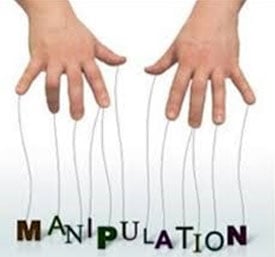
Click here to get this article in PDF
The federal criminal trial of JP Morgan executives Michael Nowak, Gregg Smith, and Jeffrey Ruffo began on July 8th. These senior bankers are accused of running a years-long scheme to manipulate precious metals prices through what is known as “spoofing.”

Perhaps the three will be found guilty, but it isn’t likely to have much impact on trading in the paper silver markets. If there is solution to artificially rigged prices, it will come from somewhere else.
It isn’t that regulators don’t have a lot to go on. Investigators had the goods when prosecutors got Deutsche Bank to plead guilty and cooperate.
The German bank turned over mountains of additional evidence the FBI used to target two other JP Morgan traders, John Edmonds and Christian Trunz. Those two cut deals of their own and agreed to provide evidence against Nowak, Smith, and Ruffo.
At present, regulators don’t seem to care much about cleaning up the markets. They appear to have little interest in holding the actual businesses that drive these corrupt trading schemes accountable.
The effort is focused on prosecuting a few lower-level crooks while avoiding serious consequences for the bank and its senior executives.
JP Morgan, the institution, got a “Deferred Prosecution Agreement” from the Department of Justice and paid a modest fine in 2020. The bank may continue trading as usual regardless of the outcome of the trial now underway.
The cozy relationship between the bank and its regulators is apparent. The optics are bad. But they have no shame.
David Meister served as Director of Enforcement at the CFTC from 2010 to 2013. In September of 2013, his agency ended its 5-year investigation into price manipulation at JP Morgan and declared there was no basis for action.
The subsequent Department of Justice prosecutions have revealed what a farce the CFTC investigation was, but this failure seems only to have enhanced Meister’s career.
He left the CFTC just after closing the investigation for a more lucrative career as a Wall Street attorney. Today Meister is Michael Nowak’s defense counsel.
The COMEX and the LBMA, the two private organizations operating the markets where the corrupt trading practices occur, apparently have no intention of holding JP Morgan accountable.
You might think physical silver investors would get frustrated and simply throw in the towel. But they haven’t. Lower prices and declining confidence in institutions, including banks and government, is driving more buying – at least in the physical markets.
And herein lies the solution. Ultimately, demand for physical bullion – not paper proxies – is the path to ultimately terminating price manipulation.
The actual number of bars underpinning the enormous volume of paper silver trading has been in steep decline since early 2021. #SilverSqueeze may be out of the headlines, but investors are still stacking.
Ronan Manly, of BullionStar, reports silver stockpiles in LBMA and COMEX vaults are at a 6-year low.
The inventory situation for the exchanges gets even more dire when accounting for how much of the reported stock is not immediately available for delivery because the metal is held by ETFs and private investors.
If outflows in the next 18 months match those of the past 18 months, the available physical inventory could approach zero. That is the moment when holding silver IOUs will not be the same as holding the metal itself.
In such a scenario, a default on the futures trading exchanges may only be avoided if prices for silver rise enough to entice the holders of physical bars to part with them.
The CFTC may turn a blind eye to the problems on the COMEX, but the physical markets themselves aren’t above the laws of physics.